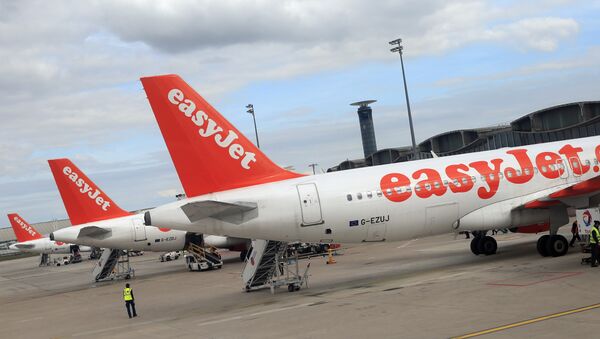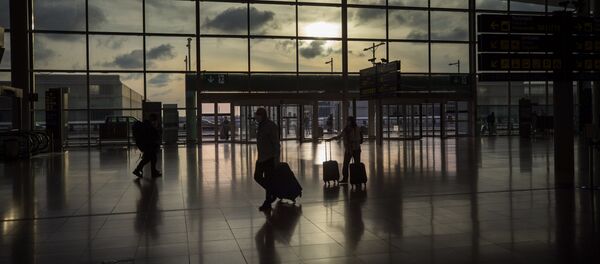EasyJet is estimated to lose from £815m to £845m in pre-tax revenues, down from a forecast of £794m, Sky News reported on Monday.
The losses will be a first for the company in its 25 years of operations and comes amid the ongoing coronavirus pandemic.
According to the carrier, flights will operate at 25 percent of normal capacity into 2021, adding that the profit warnings underlined major challenges in the industry. Capacity from the peak July to September season was just 38 percent.
"Aviation continues to face the most severe threat in its history and the UK government urgently needs to step up with a bespoke package of measures to ensure airlines are able to support economic recovery when it comes," chief executive Johan Lundgren said in a statement.
But according to Sky News, the carrier has warned London it may need additional financial backing to maintain operations. But no formal request has been made to date.
EasyJet would "continue to review its liquidity position on a regular basis and will continue to assess further funding opportunities, including sale and lease backs, should the need arise," the company said.
The low-cost carrier was forced to ground its entire fleet in late March after Downing Street imposed a national lockdown, with flights resuming on a limited schedule in mid-June.
IATA 'Rings The Alarm Bells" as Global Revenues Set to Collapse
According to the IATA, the aviation industry will "burn through" $77bn USD in the second half of 2020, or $13bn a month, despite restarting operations, and roughly $5bn to $6bn a month in 2021 due to the coronavirus crisis.
But governments have provided $160bn in support, including direct aid, wage subsidies, corporate tax relief and others, the IATA said.
While the IATA was "grateful" for the funding, the crisis was "deeper and longer than any of us could have imagined", it said.
“Today we must ring the alarm bell again. If these support programs are not replaced or extended, the consequences for an already hobbled industry will be dire,” IATA director-general and chief executive Alexandre de Juniac said in a statement.
Airlines have historically received high revenues from the peak summer season to prepare for "leaner" winter months, but "disastrous" earnings this year provided no support, de Juniac added.
Figures from the organisation estimate that the industry burned $51bn in savings due to an 80 percent revenue shortfall. Carriers are expected to use roughly $77bn in the second half of 2020 and a further $60bn to $70bn in 2021.
— IATA (@IATA) October 8, 2020
The IATA does not expect the industry to make a profit until 2022, and has urged airports and industry leaders to implement global testing measures as recommended by the International Civil Aviation Organisation as alternatives to quarantine rules.




